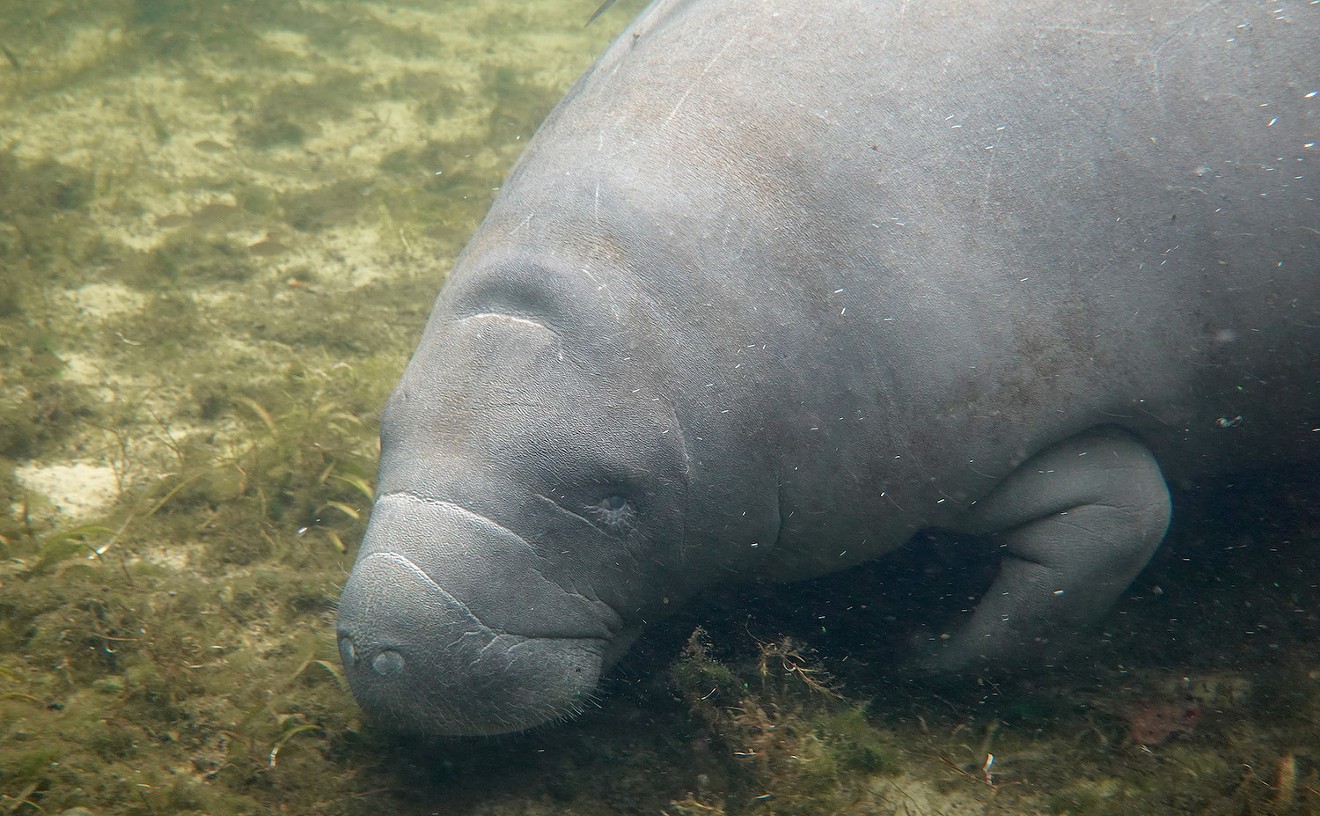After scrutiny from New Times and other major media outlets, Caliburn International — the for-profit investment company that, among other projects, runs the Homestead Temporary Shelter for Unaccompanied Children near Miami — has killed its plans to sell $100 million in shares on the stock market.
"The Company is seeking withdrawal of the Registration Statement because it no longer wishes to conduct a public offering of securities at this time," a letter filed today with the Securities and Exchange Commission reads.
Caliburn issued a media release this morning stating the company nixed plans to go public because of "market" forces. "Due to variability in the equity markets, we are withdrawing our public offering," CEO Jim Van Dusen stated. "Our business continues to grow, and we could potentially return to the public markets in the future."
(Renaissance Capital, a Connecticut firm that tracks initial public offerings, or IPOs, first noted the filing on its website today.)
But Caliburn received national scorn after New Times reported earlier this year that the company was looking to sell stock, in part, on a business model that revolved around detaining as many as 2,350 immigrant and refugee children at a sprawling Miami-Dade compound. Today a group of immigrant-rights activists protested outside the facility and demanded the government stop using for-profit companies to run the center. The facility is the largest of its kind in the United States.
The Homestead shelter is, technically, run by one of Caliburn's subsidiaries, the Cape Canaveral-based Comprehensive Health Services. (It previously paid a $3 million medical fraud settlement to the federal government without admitting wrongdoing.) In 2018, the investment firm D.C. Capital Partners purchased Comprehensive Health and three other companies to form Caliburn. Notably, D.C. Capital Partners has significant ties to the federal government. Among many high-level current and former employees, D.C. Capital employed White House Chief of Staff John Kelly until the Intercept exposed his employment in 2017. After that story was published, Kelly quit the firm. The news raised significant questions about the ways in which current and former government employees profit from federal policies they helped create.
A different story also likely contributed to Caliburn's decisions to withdraw its IPO. Earlier this year, a nonprofit whistleblower firm working with the Daily Beast confirmed that another Caliburn subsidiary, Sallyport Global, was under federal investigation for a massive Iraqi government bribery scheme that allegedly helped pave the way for ISIS to flourish in that country. Through former Iraqi Prime Minister Nouri al-Maliki, Sallyport allegedly offered bribes to government officials in exchange for contracts at Balad Air Base in Iraq. At the time, Comprehensive Health was working as a medical subcontractor at Balad. (Caliburn and Sallyport deny any wrongdoing.)
A New Times reporter toured the Homestead facility earlier this month. Some rooms of the massive complex look like a typical grade school. The cafeteria wouldn't be out of place in any American high school. But other sections aren't so nice. Older children, for example, sleep crammed on prison-like cots inside a warehouse-size room kept at extremely cold temperatures. Children in identical gray sweatsuits mill about the complex; though most of the youngsters seem generally cheerful, they are surveilled at all times and must wear tracking bracelets. Tall cyclone fencing encircles the facility. The children are not allowed to leave until they are either placed with sponsors or turn 18, at which point they are handcuffed and sent to adult ICE detention centers. When New Times visited the facility last week, officials said the average length of stay was 57 days.
Though officials running the shelter say their goal is to help refugee children transition as quickly as possible into American life, many critics disagree. In a lawsuit filed against the federal government, the Southern Poverty Law Center claims that kids in the facility are being kept locked up as "bait" for their adult, immigrant sponsors. The suit states that one child was so traumatized by his stint in the facility that he began suffering migraines that caused him to scream in agony and resulted in his being taken to a hospital.
Earlier this month, five advocates for young immigrants told the Huffington Post that the facility provided "substandard" care.
[
{
"name": "Air - MediumRectangle - Inline Content - Mobile Display Size",
"component": "19274298",
"insertPoint": "2",
"requiredCountToDisplay": "2",
"watchElement": ".fdn-content-body",
"astAdList": [
{
"adType": "rectangle",
"displayTargets": "mobile"
}
]
},{
"name": "Editor Picks",
"component": "17482312",
"insertPoint": "4",
"requiredCountToDisplay": "1",
"watchElement": ".fdn-content-body",
"astAdList": [
{
"adType": "rectangle",
"displayTargets": "desktop|tablet"
},{
"adType": "rectangle",
"displayTargets": "desktop|tablet|mobile"
}
]
},{
"name": "Inline Links",
"component": "18711090",
"insertPoint": "8th",
"startingPoint": 8,
"requiredCountToDisplay": "7",
"maxInsertions": 25
},{
"name": "Air - MediumRectangle - Combo - Inline Content",
"component": "17482310",
"insertPoint": "8th",
"startingPoint": 8,
"requiredCountToDisplay": "7",
"maxInsertions": 25,
"watchElement": ".fdn-content-body",
"astAdList": [
{
"adType": "rectangle",
"displayTargets": "desktop|tablet"
},{
"adType": "rectangle",
"displayTargets": "desktop|tablet|mobile"
}
]
},{
"name": "Inline Links",
"component": "18711090",
"insertPoint": "8th",
"startingPoint": 12,
"requiredCountToDisplay": "11",
"maxInsertions": 25
},{
"name": "Air - Leaderboard Tower - Combo - Inline Content",
"component": "17482313",
"insertPoint": "8th",
"startingPoint": 12,
"requiredCountToDisplay": "12",
"maxInsertions": 25,
"watchElement": ".fdn-content-body",
"astAdList": [
{
"adType": "leaderboardInlineContent",
"displayTargets": "desktop|tablet"
},{
"adType": "tower",
"displayTargets": "mobile"
}
]
}
]












